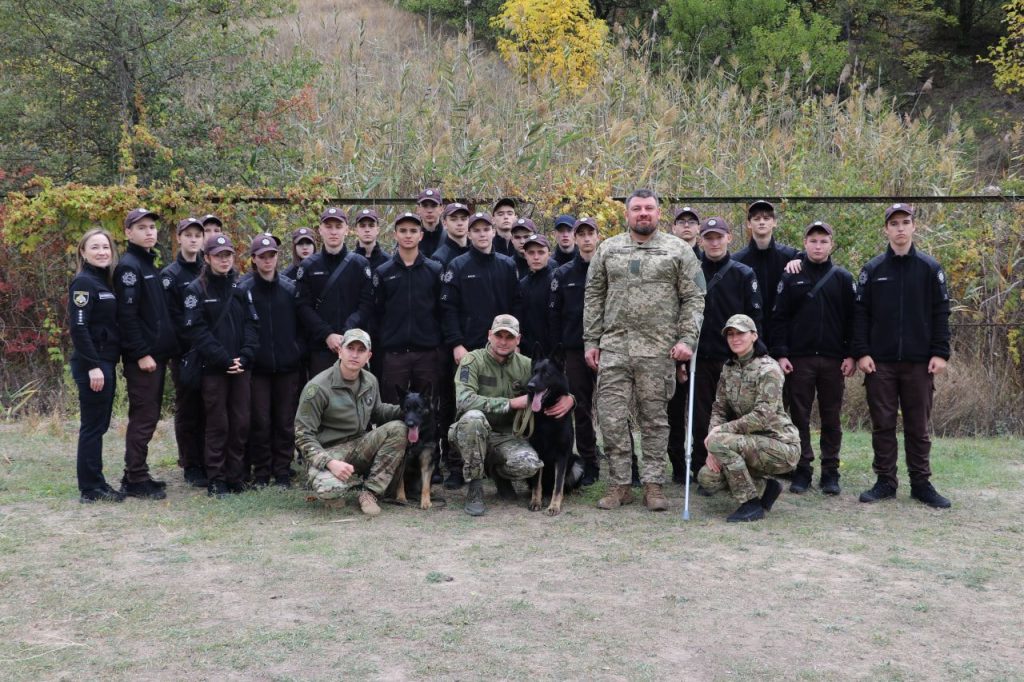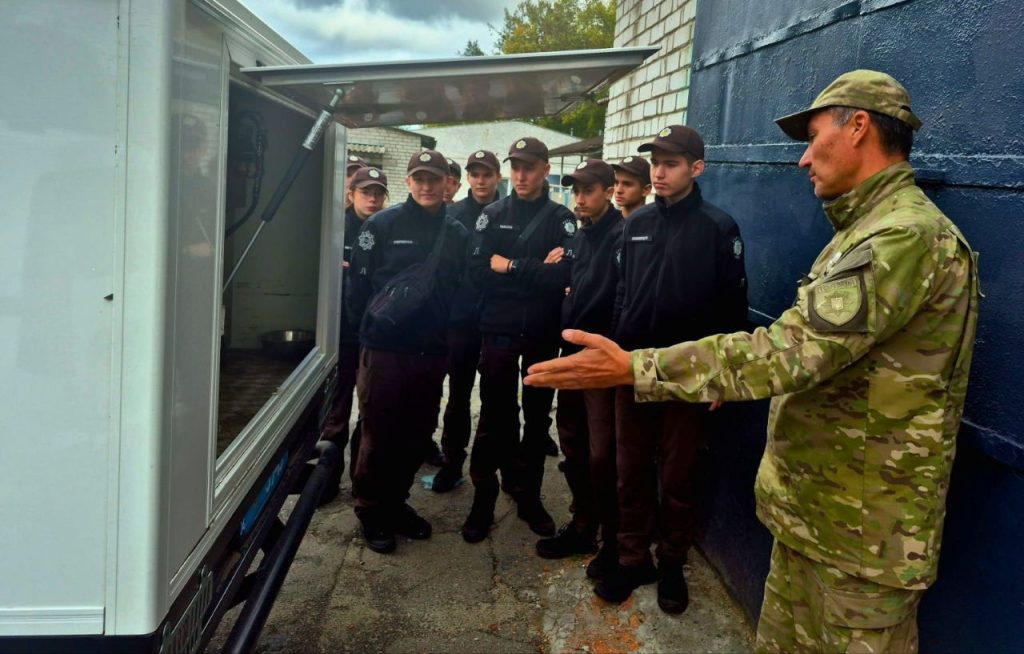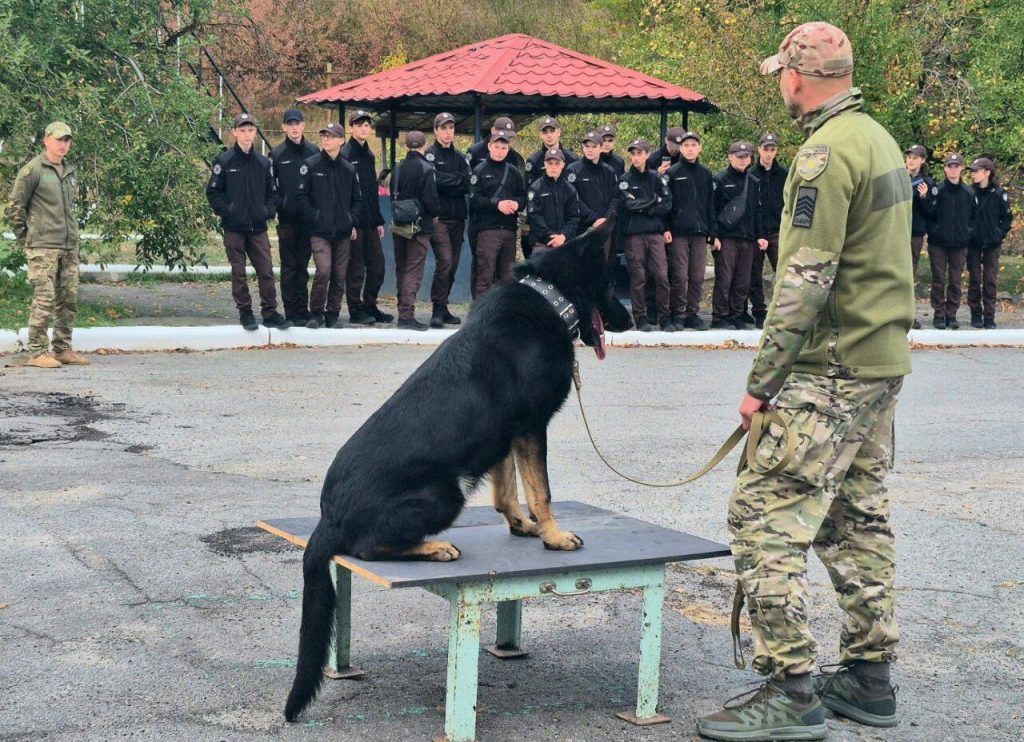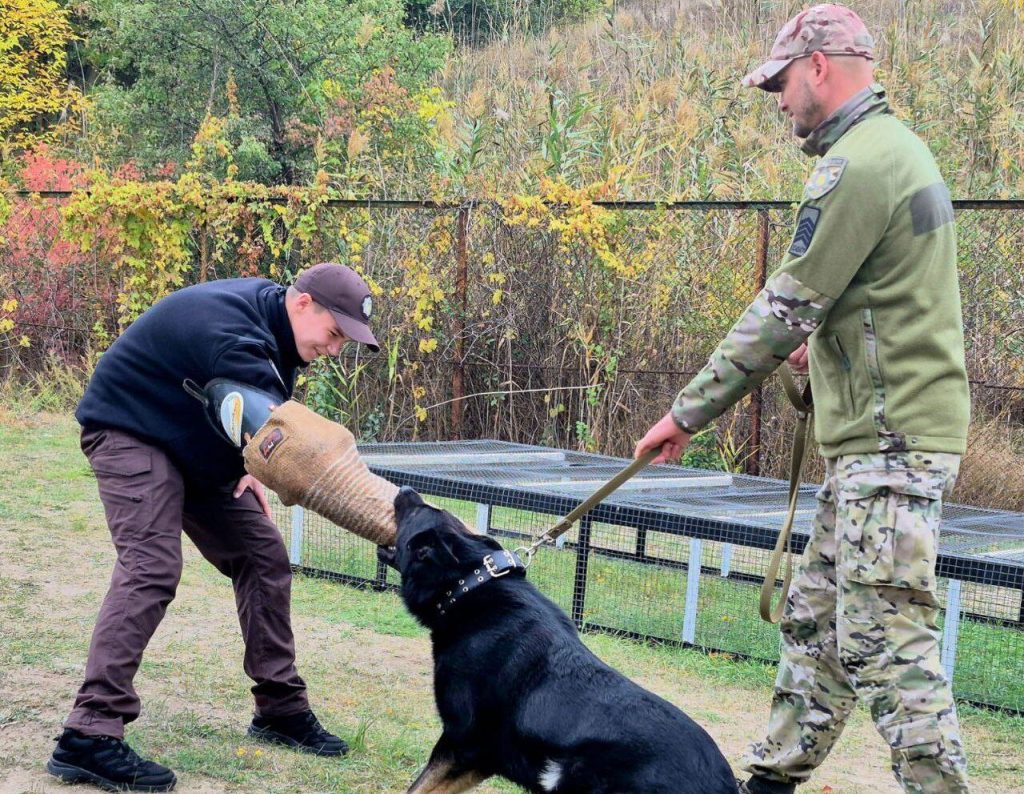Lyceum students gained a practical understanding of the work of police canine officers, learned about the training of service dogs, and participated in demonstration exercises.

The specifics of training a police canine officer, their key tasks, and the features of interaction with service dogs were explained to the lyceum students by Senior Inspector-Canine Officer of the Main Directorate of the National Police in Dnipropetrovsk Region, Police Major Vadym KACHAN. He also shared which training methods are applied to four-legged animals to develop a fully capable search dog able to quickly pick up a trail, find a lost item or person, detain a criminal, or detect hidden weapons or drugs.

The practical part of the event included a demonstration of the skills of service dogs: German Shepherds Tyson and Karma and Belgian Shepherd Sparta. Under the guidance of Junior Inspector-Canine Officers, Senior Police Sergeants Artem HRYTSAI and Kostiantyn IHNATENKO, the dogs performed search tasks, commands by voice and gestures, and demonstrated elements of detaining offenders. Lyceum students also participated in modeling a detention and acted as extras.
After the demonstration performances, the students were able to communicate with the canine officers and their dogs, ask about the specifics of their service, and take photos as a memento.


During the visit, the lyceum students learned about canine therapy – a form of rehabilitation and psychotherapy that uses specially trained dogs to improve the physical and emotional state of people. The key aspects of this method were explained by the Deputy Head of the Psychological Support Department of the Personnel Support Directorate of the Main Directorate of the National Police in Dnipropetrovsk Region, Police Captain Yuliia KRUPENKINA.
An experienced military man, scout, and assault soldier Denys SKALEUKH, Assistant to the Head of the Main Directorate of the National Police in Dnipropetrovsk Region on veteran policy issues, shared his combat experience with the students.
Such events play an important role in the professional orientation of youth, form a practical understanding of the work of law enforcement agencies, and contribute to a conscious choice of future profession.
— 290

